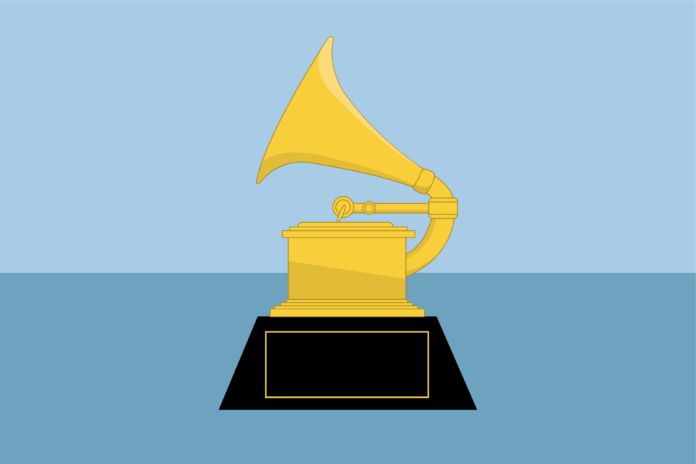Discussing top nominations, integrity of the process
In November, the nominations for the 62nd Annual Grammy Awards were announced — and, like every awards show, everyone’s got opinions.
And similar to the reaction everyone seemed to have to their Spotify Wrapped data, this year’s General Field nominations were initially a bit puzzling. At the same time, they made perfect sense, as if the nominees were simply pulled from data sets — no different than how my Top 5 songs of 2019 were determined by Spotify.
As for best new artists, there’s a typical mix of names you don’t recognize and those that you could’ve sworn you’ve been listening to for years including Lizzo, Billie Eilish and Lil Nas X who are all also nominated for Record and Album of the Year. With some exceptions, General Field nominees are mostly chart-toppers.
Most years, there is a name that appears in every category it possibly could, and this year it’s Lizzo, who led the pack with eight nominations. Billie Eilish and Lil Nas X followed close behind, with six each.
There are always deserving names that are missing, which may vary depending on who you ask. This year, Taylor Swift only appears once despite having released an album this year. Similarly, Bruce Springsteen, who released his first album in five years, didn’t make it into a single category. In addition, most General Field nominations were pop and rhythm and blues artists, leaving out the hip-hop and rap artists who are usually given at least a couple nods in these top nominations.
We all know artists who are equally as talented as many if not all of the artists who received nominations; it begs the question: How are these artists chosen? There are 12,000 committee members (out of 21,000), each of whom meet a qualification related to creating and releasing music. These members decide on the first vote, according to Billboard. The ballot they choose from for each category is comprised of hundreds of entries submitted by whoever meets the qualifications. From this initial vote, 150 so-called star committee members choose the final five nominees per category, with some opportunity for change when the larger committee votes again on a subset of categories they are experts in.
With so many people voting on a topic that is substantially judged based on subjective opinion, it seems like the finalists are chosen somewhat arbitrarily. Moreover, who are these committee members and who chooses who gets in? The highest achieving or best connected individuals arguably could make up a lot of the vote. Thus, artists with similar portfolios likely have relationships with voters, giving people like Ariana Grande, Drake and Beyoncé a better chance at a nomination and a win than the less popular names that sometimes make it on the list.
I can’t say this is true of all categories, both because I don’t listen to every genre (despite my Spotify Wrapped deeming me genre-fluid this year, refusing to let one sound define me), and because there is a greater mix of popularity levels of artists in certain sub-categories. For Best Rhythm and Blues Album, for example, Anderson .Paak and Ella Mai average around five to seven million more monthly listeners on Spotify, respectively, than the three other nominees, BJ The Chicago Kid, Lucky Daye and PJ Morton.
In addition, there are so many components of song making that are made possible by people the average music lover doesn’t know about. This year’s non-classical engineering, producing and remixing nominations mostly give credit to people who have worked on particularly successful records.
Every year, seeing as this award grants the highest status of achievement in the music industry, I expected there to be some hidden gem of a song — some earth-shattering recommendation from the experts. And yet, this year’s lists were underwhelming; the radio songs and chart toppers take up most of the space, other than Best New Artist.
This hasn’t always been the case. Kacey Musgraves wasn’t as popular before her Album of the Year win in 2019 and, being a country singer, it was a surprise to see that General Field nomination. It’s safe to say that the Grammys put me onto Ms. Musgraves’ golden voice.
This is not to say that we should cancel the Grammys. Regardless of our knowledge of the inner workings, it is undoubtedly a historic and respected event, and being nominated should be considered a huge accomplishment.
And so this year I will join 20 million other music lovers in watching the Grammys. Maybe we tune in for the unique and never-to-be-seen-again performances, or the extravagance and beauty that these events display. Or maybe we don’t mind questioning another ambiguous and possibly flawed system. Because at the end of the day, it gives us what we want: entertainment. And in the case of evaluating entertainers, isn’t that the point?
Written By: Allie Bailey — arts@theaggie.org




